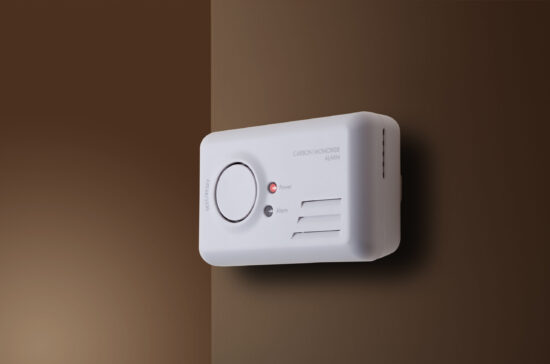If you are a property owner, of course you understand the regulations that are in place to keep residents and tenants in public and multifamily housing programs safe. As of 2022, there is a new HUD carbon monoxide alarm requirement, with the intent of protecting residents from carbon monoxide poisoning.
Carbon monoxide in homes could be caused by any number of fuel burning appliances, including gas stoves and gas heaters. A carbon monoxide leak combined with a lack of fresh air in a home can be deadly. The CDC estimates that approximately 200 people per year die from carbon monoxide poisoning, with thousands more injured. The carbon monoxide alarm requirement is a simple statute ensuring that residents are kept safe and that HUD homes are compliant with safety concerns.
HUD Carbon Monoxide Alarm Requirement Effective in Homes By The End of 2022
On January 31, 2022, HUD’s Office of Public and Indian Housing, Multifamily Housing Programs and Lead Hazard Control and Healthy Homes released a collaborative notice requiring owners in the following HUD programs to install carbon monoxide alarms or detectors by December 27, 2022:
- All Public Housing (PH)
- Housing Choice Voucher (HCV)
- Project Based Voucher (PBV)
- Project Based Rental Assistance (PBRA)
- Section 202 Supportive Housing for the Elderly (Section 202)
- Section 811 Supportive Housing for Persons with Disabilities (Section 811)
It outlines common risks of and how to detect and prevent carbon monoxide poisoning in our communities and implementation requirements. Finally, it discusses allowable options for owners to fund the purchase of the required equipment in order to comply.
Note: The Notice does not mention there being any exceptions to this requirement for properties that do not offer gas utilities. See our post dated on July 21, 2022 for the REAC clarification regarding the HUD carbon monoxide requirement and how it does not apply to buildings that do not offer gas-related systems. In other words, if your property is completely run by electric power, carbon monoxide units are not required. You can read about this exception in the HUD notice here.
Click here to read the Notice regarding the new HUD carbon monoxide alarm requirement for home and property owners, and the purpose and requirements of this notice.
At DeSilva Housing Group, we specialize in supporting affordable housing owners and property managers with HUD compliance. We offer training and consulting services, along with policy development assistance, and other resources to ensure you and your property are compliant with HUD regulations.
If you’d like to find out more about how we can assist you with compliance support, reach out to us today. We’d be happy to have an in-depth discussion with you about our services.
Be sure to follow our Facebook page for up to the minute updates, event notifications and more from the DeSilva Housing Group.





